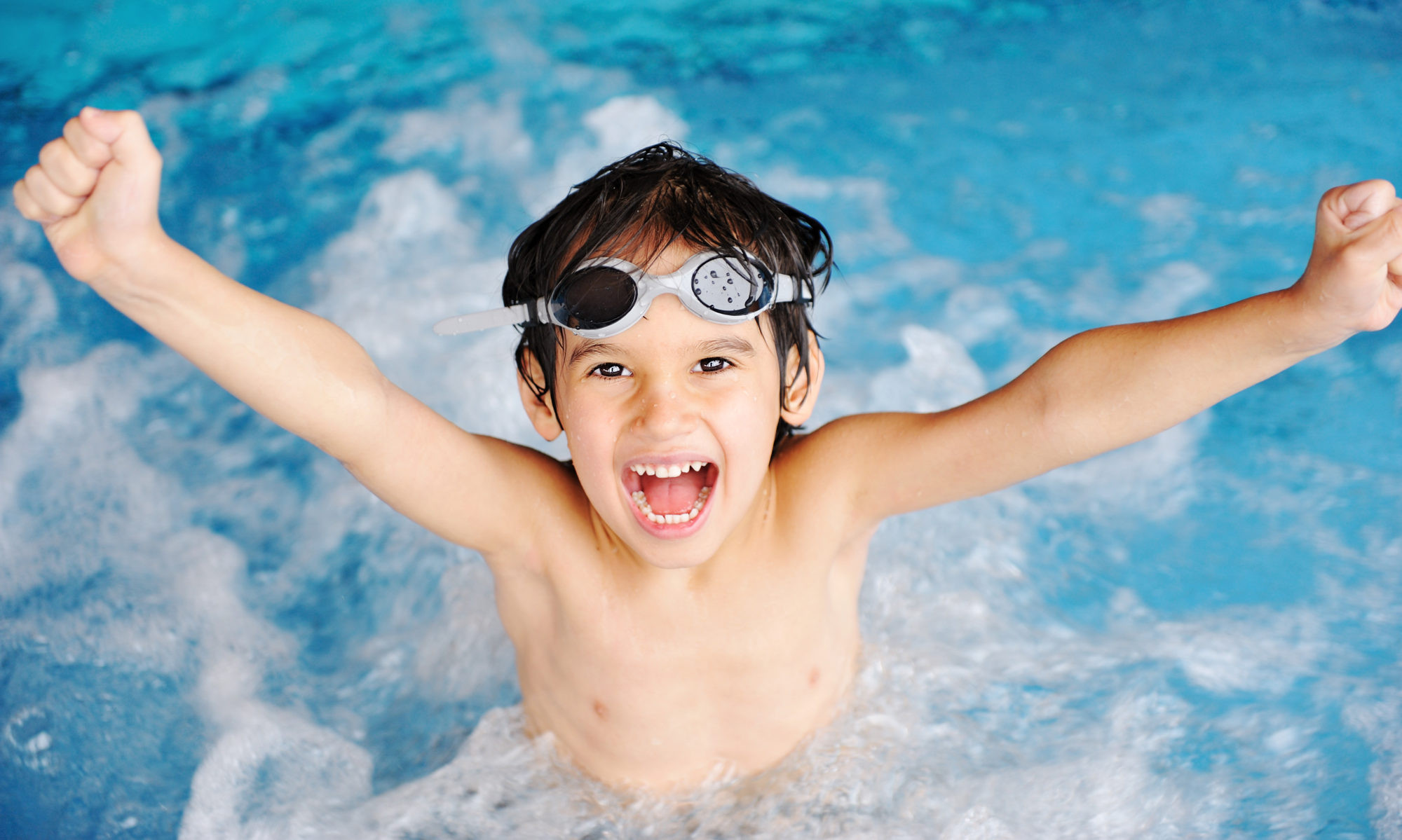Whether you’re teaching your kids to swim on your own or taking them to swimming lessons, you probably wonder when you can expect results. Whether they’re working up the courage to get into the pool for the first time or working on turning a dog paddle into a crawl, there are 6 factors that determine how long it takes your kids to learn to swim.
How long it takes is completely dependent on you and your child. That’s both the good news and the bad news.
6 Factors That Determine How Long It Will Take Your Kids to Learn to Swim
Where are your kids physically, mentally and emotionally?
If your kids are the ones who make other parents cringe–you’re too used to it to be afraid–when they climb to the very top of each tree at the park or do flips off the monkey bars, you can expect that physical precociousness to translate to the water. If your kids take a little longer to learn physical skills or still feel a little awkward in their bodies, learning how to move to swim will take a little longer, too.
If your kids pick up new ideas quickly, they’ll probably pick up the concepts they need for swimming quickly, too. If they tend to take their time and ponder things a little longer, you can expect that learning style to be reflected in the pool.
If your kids are confident and embrace change and challenge, the emotional part of learning to swim will be a breeze. If your kids are like my son, sometimes stubborn and fearful, that will tack some time onto the process.
How creative are you?
The more new and different approaches you can apply when you’re teaching your kids to swim, the more opportunities you’ll give them to get each idea. You’ll also be giving them more mental hooks to internalize and deepen what they learn.
How comfortable are your kids with the water already?
If your kids love to splash, you’ve got a head start. If they’ve spent their entire lives wading at the beach or having you hold them in the backyard pool, they’re ripe to learn to swim. If they’re uncomfortable getting wet, you’ve got a longer path ahead of you.
How motivated is your child?
Do your kids want to learn to swim, or is it just something you want for them. Having older siblings who get to play and have fun in the water motivates most kids to want to learn. So does wanting to do something that requires swimming, such as surfing or even getting rid of the goofy-looking water wings.
If swimming doesn’t have an appeal on its own, don’t hesitate to find and use extrinsic motivators. Has your child been eyeing a new skateboard or video game? It’s his—as soon as he can swim the width of the pool by himself.
How sensitive are your kids to physical stimuli?
When they get cold or wet, do they laugh it off or burst into tears? The more sensitive your kids are, the more effort you’ll need to make to keep their swimming lessons as comfortable for them as possible. No matter what you do, though, learning to swim often involves being cold, and it definitely involves getting wet. If that’s a mental or emotional stumbling block for your kids, teaching your kids to swim will take a little longer. (I still have to psych myself to get into a cold pool. My son just jumps right in.)
Does your child like novelty or the familiar?
If your kids like thrills, meeting new people, and changes in routine, they’ll probably enjoy the novelty of swimming. If your kids get thrown out of whack by those things, the novelty of swimming will be a stressor they’ll have to get used to before you can make much progress teaching them to swim.
A big shift in skill and ability will happen when your child learns to relax in the water. Ironically, it’s hard to relax in the water until you have enough skill to feel comfortable. If you hit a bump in the swimming road, take a moment to consider these 6 factors and whether they’re affecting your kids’ progress.
